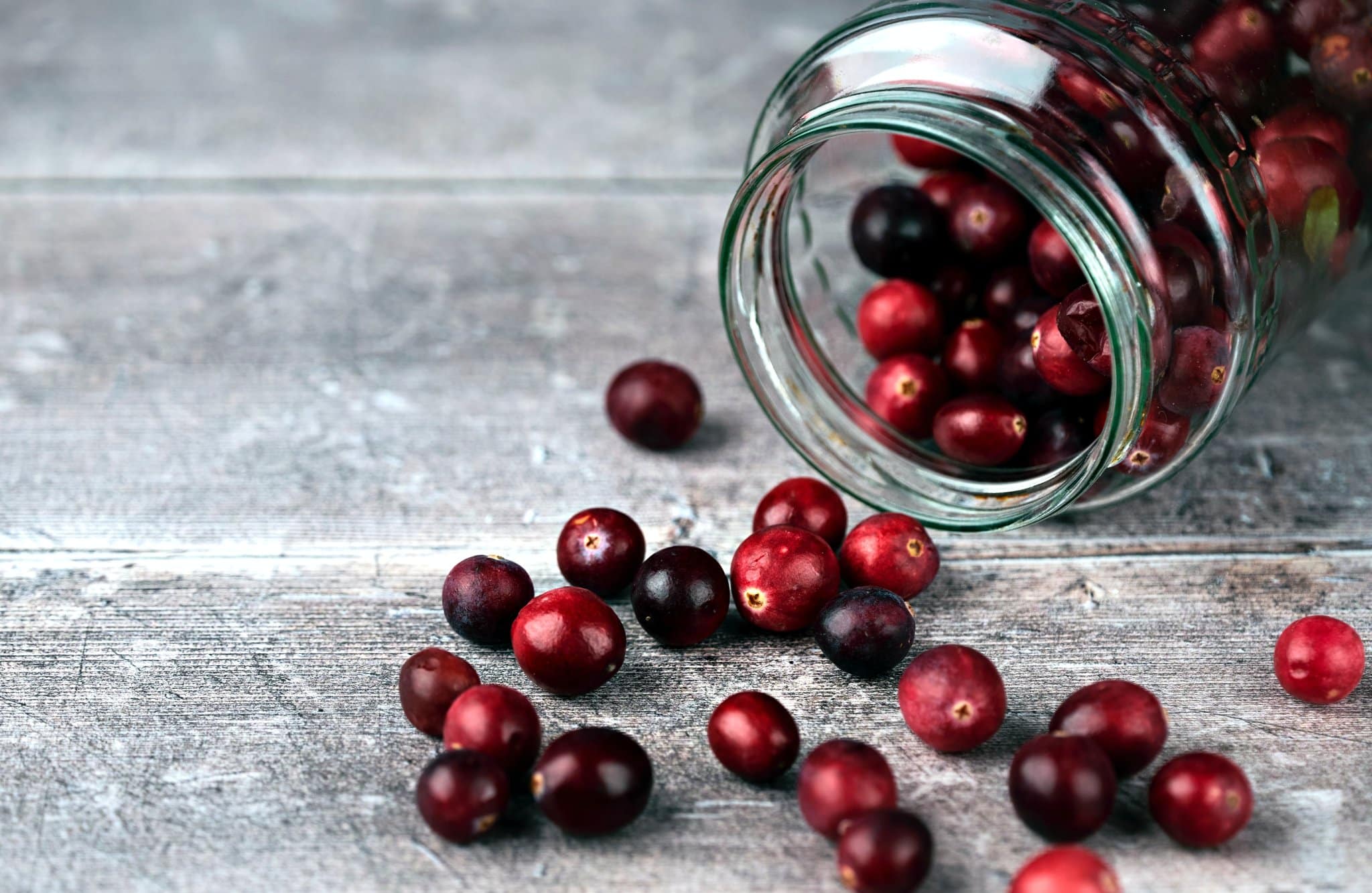Can cranberries prevent urinary tract infections (UTIs) from coming back? What other options are available without a prescription? In this short blog for women with UTIs that come back (recurrent UTIs), Selena Ryan-Vig from Cochrane UK looks at the evidence.
Last updated: 22 November 2023.
Take-home points

The evidence comes from three Cochrane ReviewsCochrane Reviews are systematic reviews. In systematic reviews we search for and summarize studies that answer a specific research question (e.g. is paracetamol effective and safe for treating back pain?). The studies are identified, assessed, and summarized by using a systematic and predefined approach. They inform recommendations for healthcare and research.* and is relevant to women with recurrent UTIs. This blog does not cover the evidence on pregnant women, children, men, older adults, or other groups of people such as those who have issues emptying their bladder.
What are urinary tract infections?
Urinary tract infections (UTIs) affect your urinary tract, including your bladder, urethra (the tube through which urine leaves the body) or kidneys. Symptoms may include pain or a burning sensation when peeing, pain in your lower back or stomach, or needing to pee suddenly or more urgently than usual. You can see other possible symptoms of UTIs on the NHS website. Some people get UTIs that keep coming back – and want to find ways of preventing them from returning.
How might recurrent UTIs be prevented?
NHS advice is to see your GP if you have symptoms of a UTI for the first time. The first time you have a UTI, you may be prescribed an antibiotic, and given advice about how to prevent recurrent UTIs. There are a number of practical things you can do (or avoid doing) to prevent UTIs.
If you have two UTIs within six months, or a UTI comes back after treatmentSomething done with the aim of improving health or relieving suffering. For example, medicines, surgery, psychological and physical therapies, diet and exercise changes., your GP may prescribe you a different antibiotic, prescribe a low-dose antibiotic for up to 6 months, or a vaginal cream containing oestrogen (if you have gone through the menopause).
Efforts to prevent UTIs from coming back have often relied on long‐term use of a low dose of antibiotics. However, there may be side effects including diarrhoea, as well as antimicrobial resistance. Antimicrobial resistance is a serious issue where, over time, people could develop infections which cannot be easily treated with antibiotics.
There are also a number of options, available without a prescription, and you may be wondering whether they are worth trying:
- Cranberries
- D-mannose (sugar tablets)
- Probiotics
Making a choice? Think BRAIN!
It can be helpful to think BRAIN: What are the Benefits, Risks, Alternatives, what do I want and what if I do Nothing? These can be good questions to talk about with the health professional you see. This could be a pharmacist, a nurse, or a GP.
What are the benefits of using cranberries to prevent UTIs?
The evidence suggests that cranberries (either cranberry juice, tablets or powder) compared to placeboAn intervention that appears to be the same as that which is being assessed but does not have the active component. For example, a placebo could be a tablet made of sugar, compared with a tablet containing a medicine. or no treatment probably reduce the riskA way of expressing the chance of an event taking place, expressed as the number of events divided by the total number of observations or people. It can be stated as ‘the chance of falling were one in four’ (1/4 = 25%). This measure is good no matter the incidence of events i.e. common or infrequent. of UTIs coming back among women with recurrent UTIs.
There is not enough evidence to say whether cranberry products are better or worse than antibiotics at preventing further UTIs.
Are there any risks of using cranberries to prevent UTIs?
Any treatment can have unwanted effects.
The evidence suggests that few people may have side effects. The most common side effectAny unintended effect (e.g. dizziness or a headache) of an intervention such as a drug, surgery or exercise. of cranberries may be stomach pain.
What are the alternatives?
Other options – also available without a prescription – include:
D-mannose (sugar tablets):
- D‐mannose is a sugar which is part of a normal diet, found in certain fruits and vegetables. It can also be taken as sugar tablets.
- It is believed that D-mannose can create a non‐stick surface on the bladder wall, as well as around the bacteria. The idea is that this helps people get rid of bacteria when they pee, preventing the bacteria from growing and causing infection inside the bladder or urinary tract.
- There is not enough evidence to know whether D‐mannose can prevent recurrent UTIs, or how D-mannose compares with other options.
- There is also not enough reliable information about potential side effects. However, few people are likely to get side effects, and they are likely to be minor. The most common may be diarrhoea and a burning feeling inside the vagina.
Probiotics:
- Probiotics are live microorganisms used to change the balance of bacteria. They can be taken as tablets, capsules, or food products (such as certain yoghurts).
- Probiotics are thought to work by preventing infectious bacteria from climbing up the urinary tract and causing infection.
- There is not enough evidence to say whether probiotics can prevent recurrent UTIs, or how probiotics compare with other options.
- There is also not enough information about possible side effects of probiotics.
What are your individual preferences and experiences?
- If you are trying cranberry products, you may have a preference about how you take them (for example, you may prefer to drink cranberry juice rather than swallow a cranberry tablet, or vice versa). The evidence is uncertain about whether there is any difference between juice and tablets in terms of potential benefits and side effects.
- Cranberry products and D-mannose both have high sugar content – and you may have preferences around how much sugar you like to have.
What if you do nothing?
Around 1 in every 3 women who have had a UTI are likely to have another one within the next 6-12 months. If you do no nothing to try and prevent them from coming back, you’re more likely to have recurrent UTIs.
Practical tips and resources
The NHS website has more trustworthy information about UTIs.
If you have questions, you could speak with your pharmacist, or a health professional at a GP practice.
*The evidence on UTIs comes from these Cochrane Reviews:
- Cooper TE, Teng C, Howell M, Teixeira-Pinto A, Jaure A, Wong G. D-mannose for preventing and treating urinary tract infections. Cochrane Database of Systematic ReviewsIn systematic reviews we search for and summarize studies that answer a specific research question (e.g. is paracetamol effective and safe for treating back pain?). The studies are identified, assessed, and summarized by using a systematic and predefined approach. They inform recommendations for healthcare and research. 2022, Issue 8. Art. No.: CD013608. DOI: 10.1002/14651858.CD013608.pub2. https://www.cochranelibrary.com/cdsr/doi/10.1002/14651858.CD013608.pub2/full
- Schwenger EM, Tejani AM, Loewen PS. Probiotics for preventing urinary tract infections in adults and children. Cochrane Database of Systematic Reviews 2015, Issue 12. Art. No.: CD008772. DOI: 10.1002/14651858.CD008772.pub2. https://www.cochranelibrary.com/cdsr/doi/10.1002/14651858.CD008772.pub2/full
- Williams G, Stothart CI, Hahn D, Stephens JH, Craig JC, Hodson EM. Cranberries for preventing urinary tract infections. Cochrane Database of Systematic Reviews 2023, Issue 11. Art. No.: CD001321. DOI: 10.1002/14651858.CD001321.pub7. https://www.cochranelibrary.com/cdsr/doi/10.1002/14651858.CD001321.pub7/full
- you can also listen to a Cochrane Library Podcast – Cranberries for preventing urinary tract infections
https://www.cochrane.org/podcasts/10.1002/14651858.CD001321.pub7
- you can also listen to a Cochrane Library Podcast – Cranberries for preventing urinary tract infections
See also:
NHS. Urinary tract infections (UTIs). NHS.UK, page last reviewed 22 March 2022. Web. 12 June 2023. https://www.nhs.uk/conditions/urinary-tract-infections-utis/
National Institute for Health and Care Excellence. UTI (recurrent): antimicrobial prescribing visual summary. London: National Institute for Health and Care Excellence; 2018. Available from: https://www.nice.org.uk/guidance/ng112/resources/visual-summary-pdf-6544163629
Why you can trust this information
You can join in the conversation on Twitter with @CochraneUK or leave a comment on the blog.
Please note, we cannot give specific medical advice and do not publish comments that link to individual pages requesting donations or to commercial sites, or appear to endorse commercial products. We welcome diverse views and encourage discussion but we ask that comments are respectful and reserve the right to not publish any we consider offensive. Cochrane UK does not fact-check – or endorse – readers’ comments, including any treatments mentioned.



[…] Cranberries support urinary tract health due to their tart and acidic flavor. These tiny berries contain proanthocyanidins, which inhibit germs from sticking to the urinary system walls, lowering the risk of urinary tract infections (UTIs). Cranberries have anti-inflammatory qualities and may benefit heart health. […]